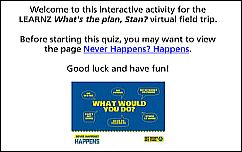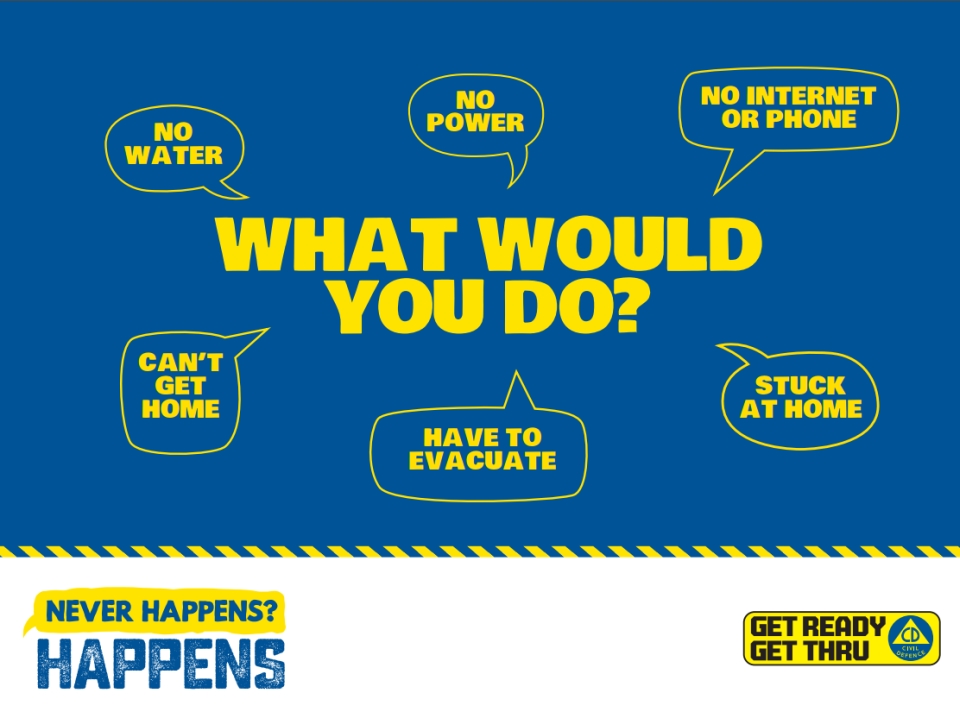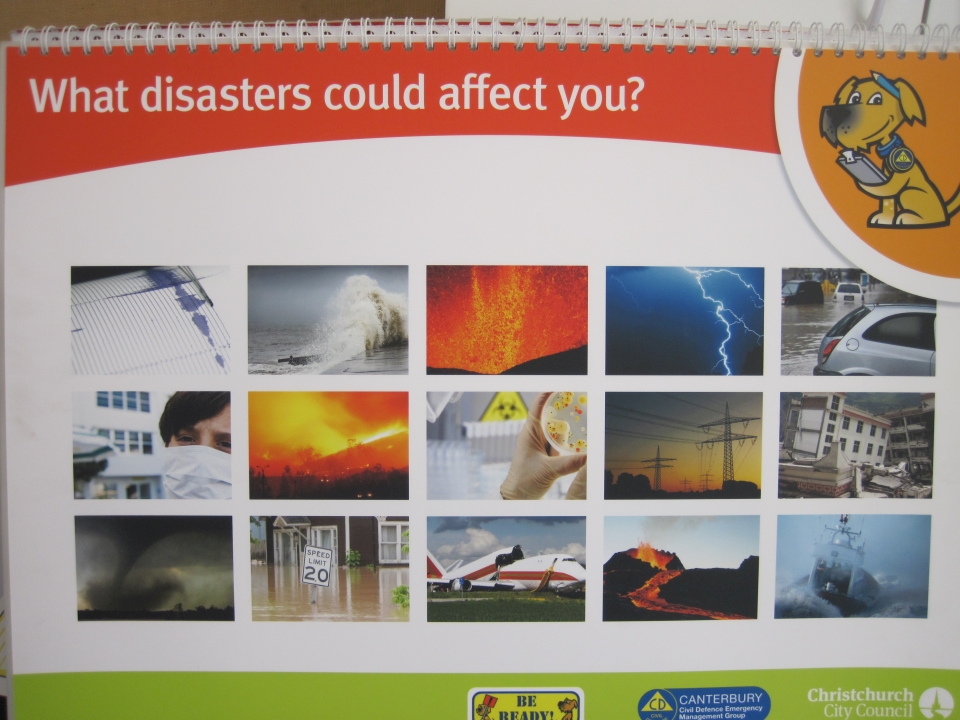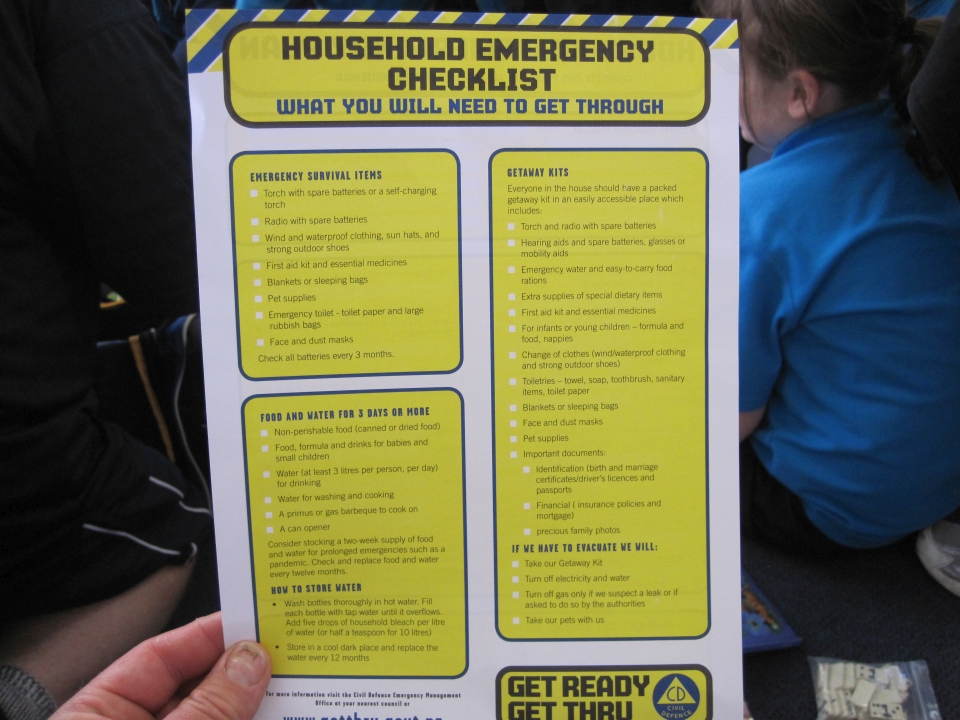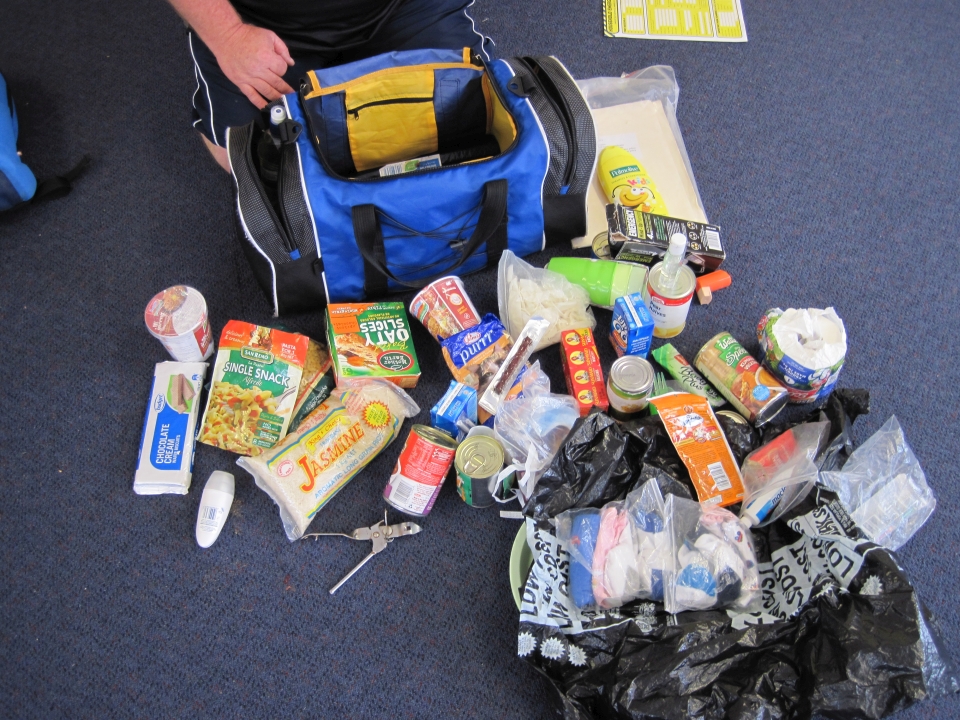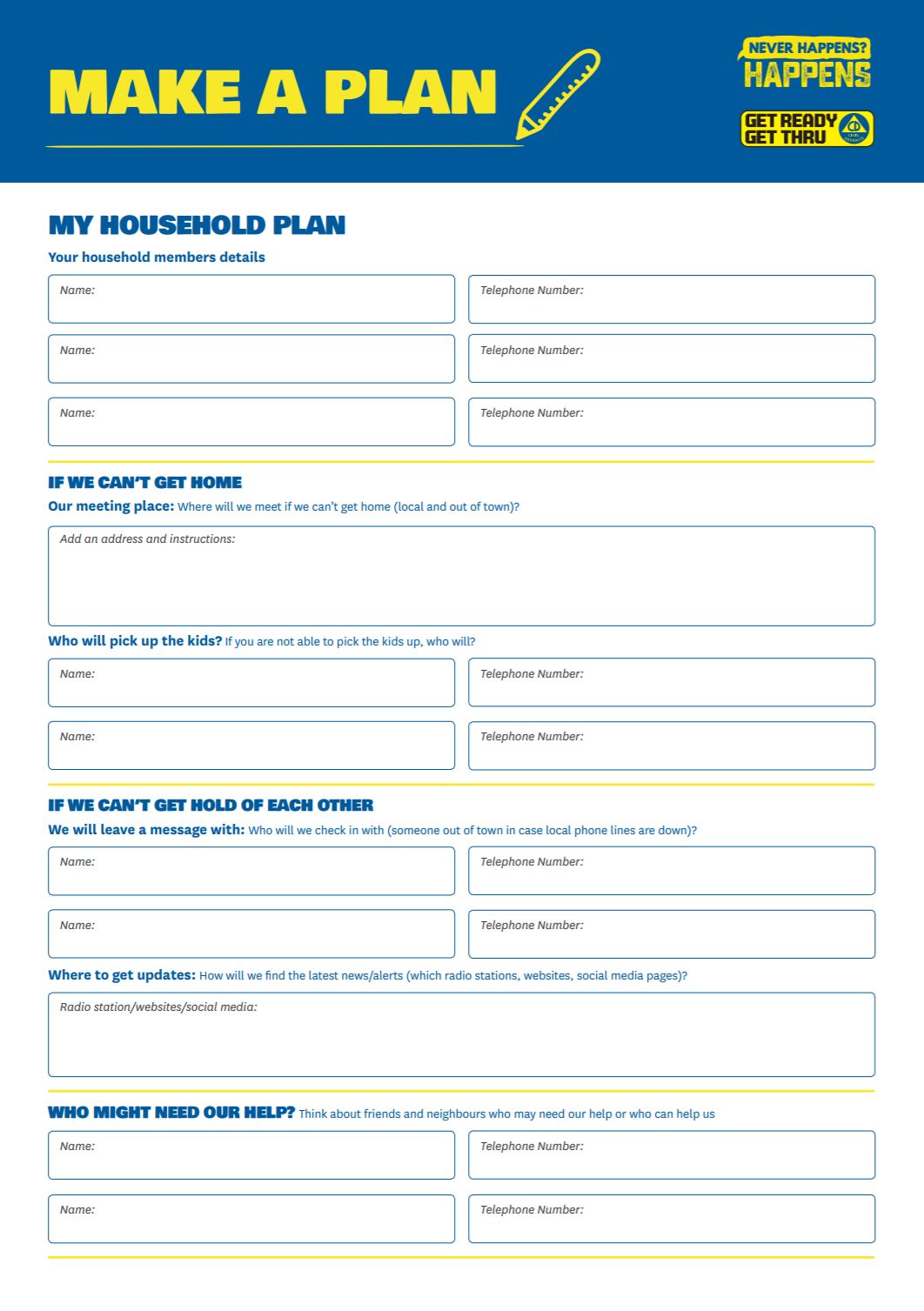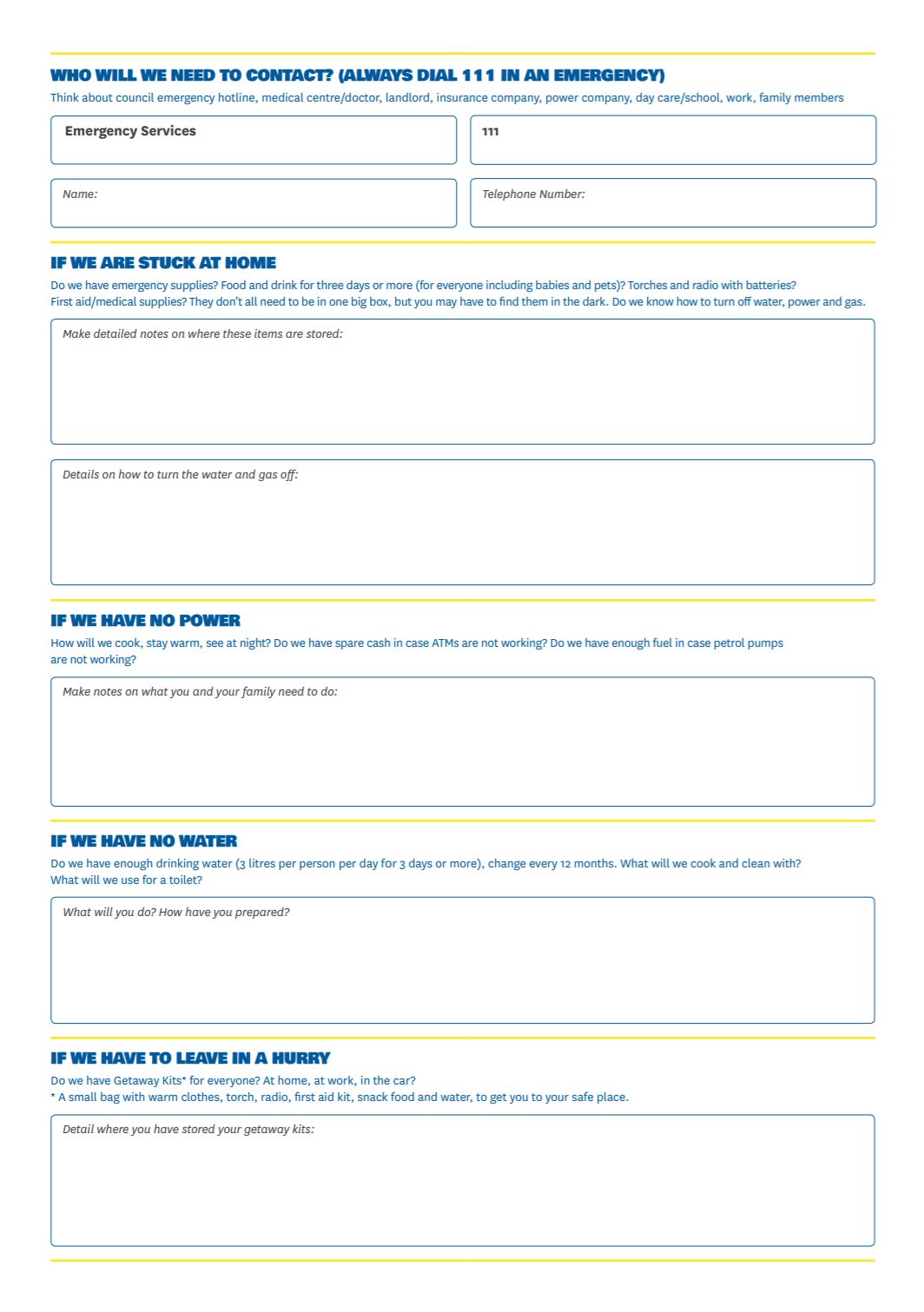Stuck at home
In most emergencies it’s best to stay in your own home if it is safe to do so. But that may mean being without power and water or any way to get supplies for three days or more.
Do you have enough food? What about family members who need medication? Do you have enough food for pets to get through too?
light up
Your emergency supplies don’t have to be in a kit, but you might have to find them in the dark. Make sure everyone knows where the torches and batteries are.
fridge first
If the power goes out, eat the food from your fridge first, then your freezer, before you eat the food in the cupboard or from your emergency supplies.
know your neighbours
Get to know your neighbours. In an emergency they may need your help or you may need their help, and you may be able to band together to get through.
Can't get home
In an emergency trains and buses may not be able to operate, roads may be closed and streets or neighbourhoods may be blocked off.
If you can’t go home the usual way, how will you get there? Who will you go with? Where will you meet up if your street is a no-go zone?
second meeting place
Agree on a meeting place if you can’t get home. It might be the school, a friend’s place, or with whānau.
Have to evacuate
In an emergency, some houses, streets and neighbourhoods may not be safe to stay in and you may have to leave home in a hurry.
If your street was evacuated where would you go? What would you take? What about pets? Do you have neighbours who might need your help?
pack a getaway bag
Have a getaway bag ready with warm clothes, a bottle of water, snacks, copies of important documents and photo ID. Remember any medications you might need and keep your first aid supplies, torch, radio and batteries somewhere you can grab them in a hurry.
decide where to go
Decide where you will go (and make sure everyone in your family knows, in case you’re not all together). Your evacuation place will probably be with friends or family, so make sure they know your plans.
check your zone
If you live in a tsunami zone, make sure your evacuation place is outside of the zone (check with your council for zone maps).
No power
What would you do if the power was out for days? How will you see, cook, keep warm?
light up
Make sure you have torches and batteries, either with your emergency supplies or somewhere everyone can find them in the dark.
stay tuned in
Have a solar or battery powered radio so you can keep up with the latest news and alerts. Know which radio stations to tune into for information during an emergency.
stock up
Have a stock of food that doesn’t need to be cooked (canned is good) or something on which to cook your food (bbq, camp stove). Don’t forget food for babies and pets.
fridge first
If the power goes out, eat the food from your fridge first, then your freezer, before you eat the food in the cupboard or your emergency kit.
No water
Imagine having no water for three days or more. How would you wash, cook, clean? What would you drink?
bottling water
Keep your empty water, juice and fizzy drink bottles, give them a good clean and fill them with water – you need three litres of water for each person for each day that you are without water. Don’t forget to store water for babies and pets too.
long term water storage
You can keep stored drinking water for up to a year if you add non-scented household bleach (half a teaspoon for every ten litres of water and don’t drink for at least half an hour after mixing).
stay fed and washed
Remember to store water for cooking and cleaning as well. You can use the water in your hot water cylinder, but store some extra in large plastic containers.
No phone or internet
If the phone and internet lines were down how would you keep in touch, arrange to meet up, keep up with news and weather alerts?
In most emergencies it’s best to stay in your own home, so make home your meeting place and have an alternative in case you can’t get there.
plan a meeting point
Talk to your family about how you will get in touch and where you will meet up in an emergency if the phone lines and/or internet are down.
stay tuned in
Have a solar or battery powered radio so you can keep up with the latest news and alerts. Know which radio stations to tune in to for information during an emergency.
out of town contact
Have an out of town contact that everyone knows about (sometimes when local phone lines are down you can still reach people outside your area). Tell everyone to check in with your out of town contact by text or online messaging in an emergency if you can.
keep a list
Keep a written list of important phone numbers.

